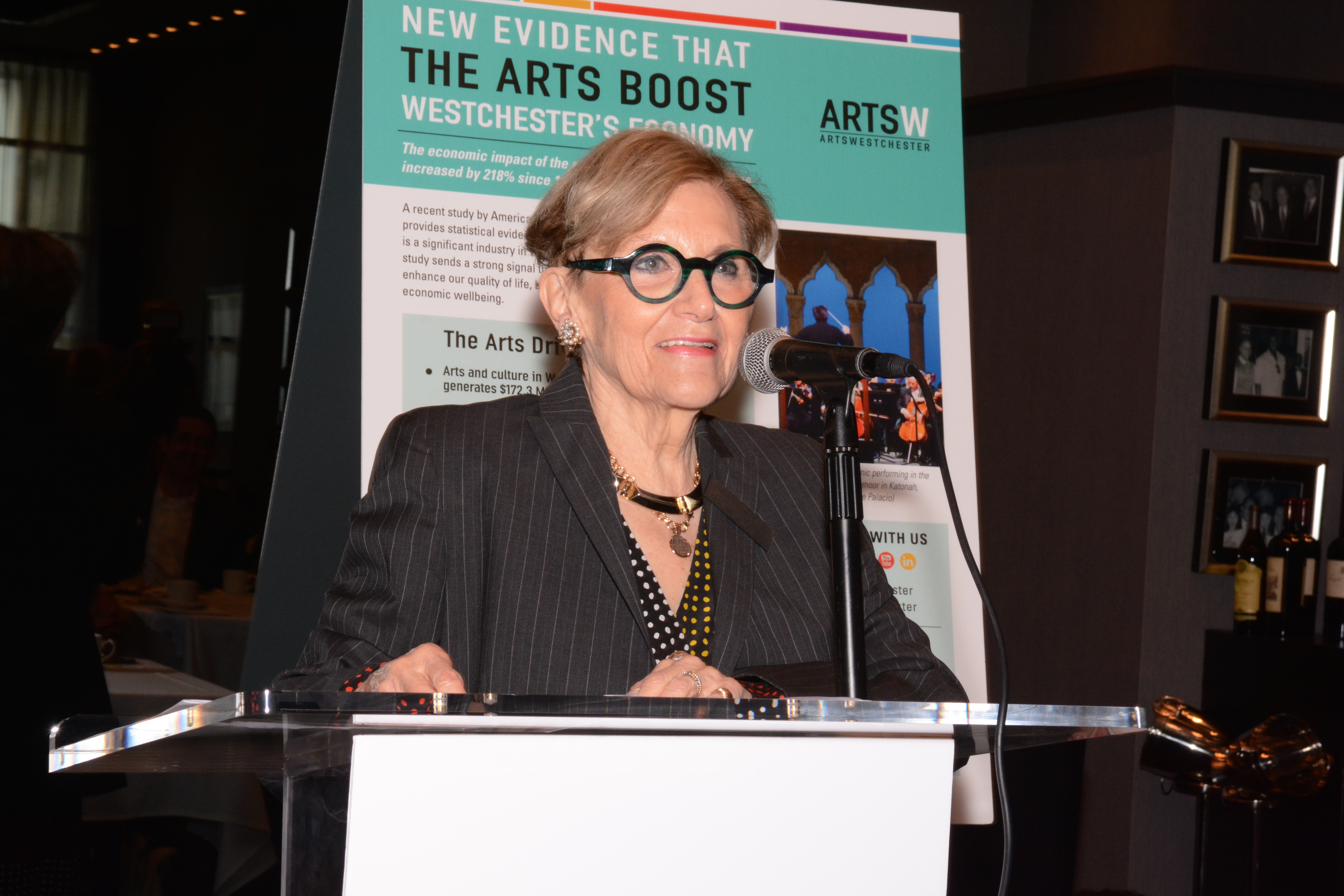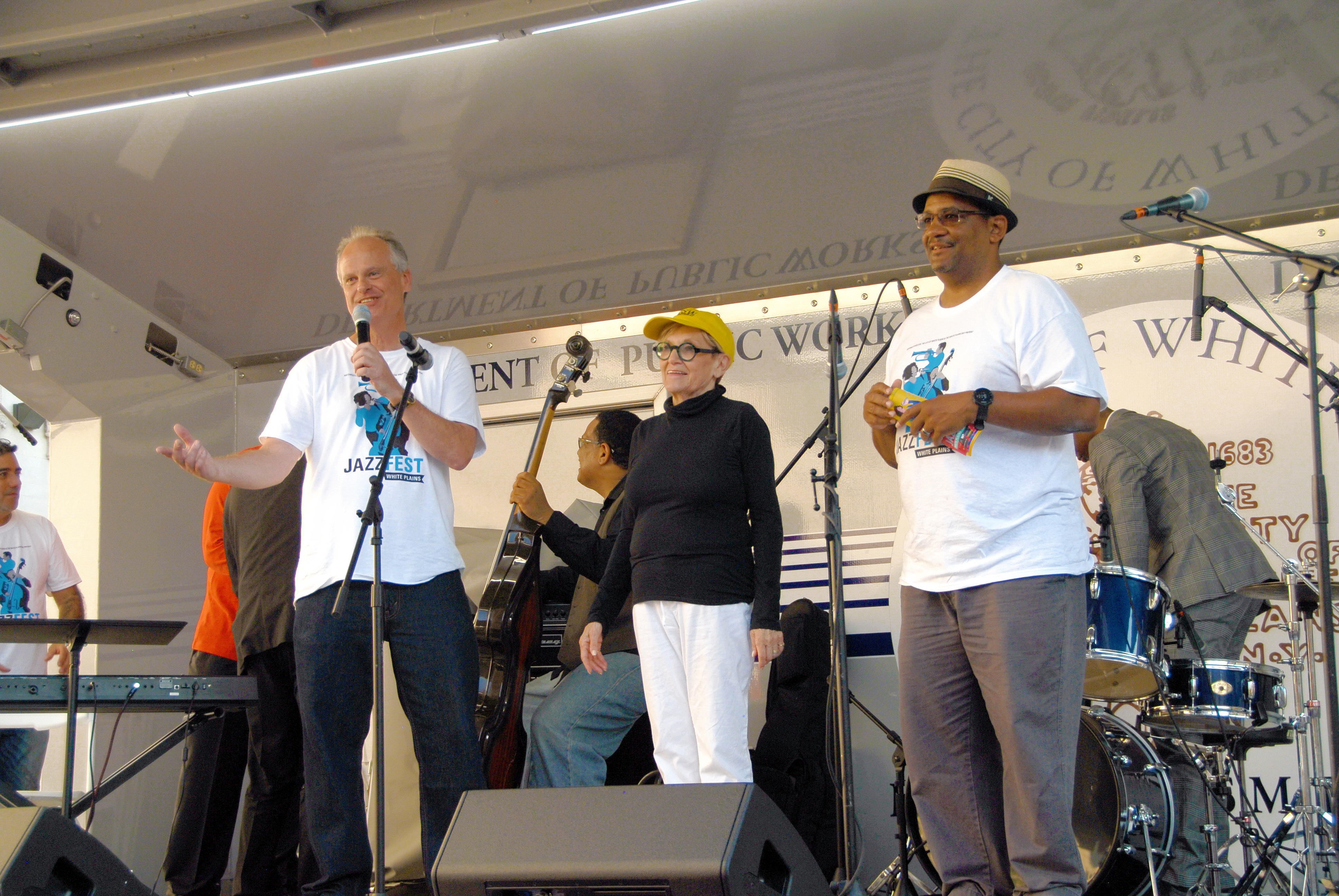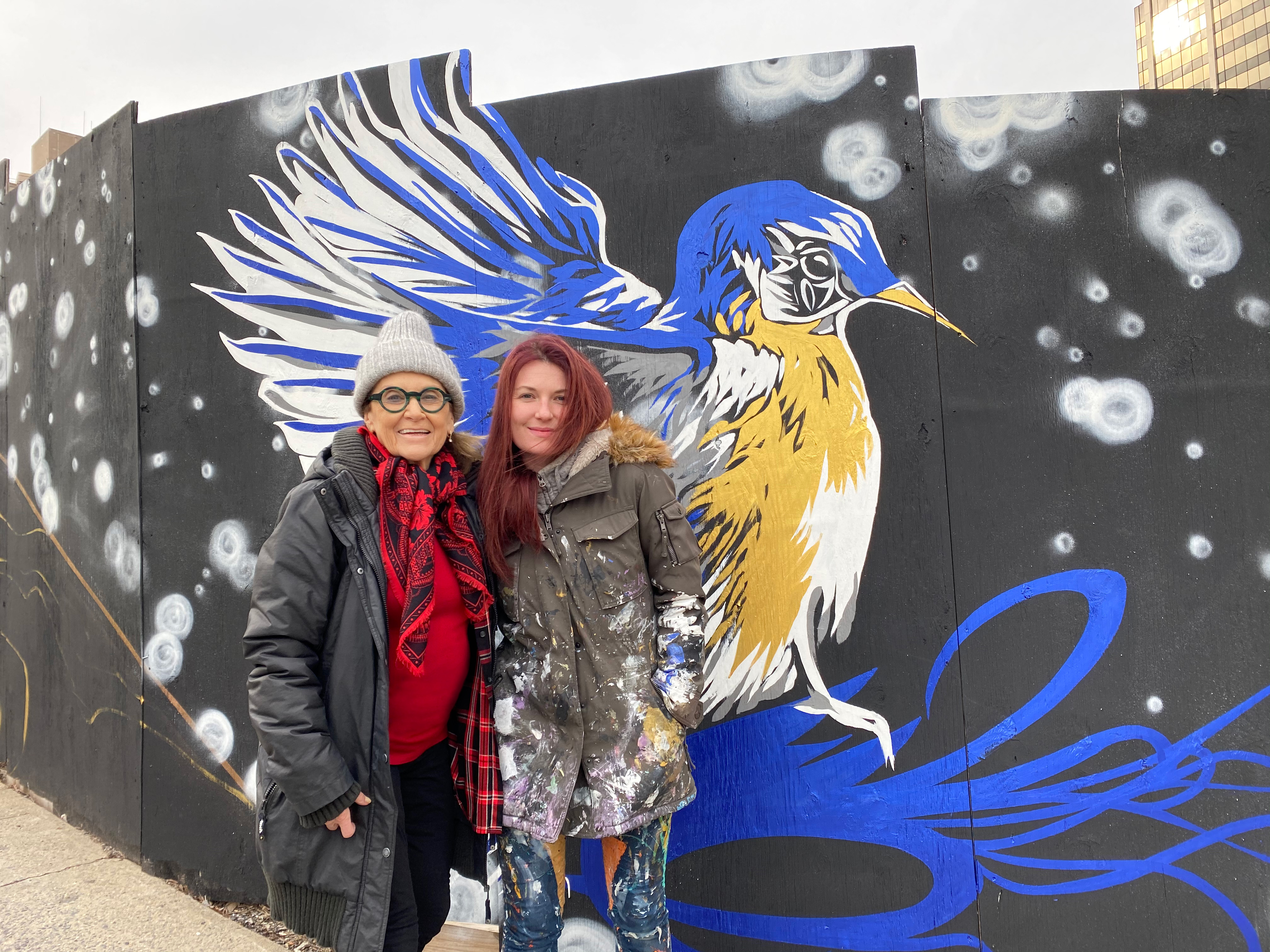You Gotta Have Art
News Based on facts, either observed and verified directly by the reporter, or reported and verified from knowledgeable sources.
ArtsWestchester CEO Janet Langsam talks about the impact and trends of the county’s much-loved (and much resilient) arts scene

Good morning! Today is Friday, May 20, and you are reading today’s section of Examiner+, a digital newsmagazine serving Westchester, Putnam, and the surrounding Hudson Valley.
Please take our brief Reader Survey to help us serve you better (CLICK HERE or see the link at the end of the story)
Need to subscribe — or upgrade your Examiner+ subscription to enjoy full access to all of our premium digital content? Take advantage of our special FREE TRIAL OFFER.
Take Examiner+ on a test drive today at NO CHARGE for a full month. Enjoy full membership-level access to all of our premium local content, delivered straight to your inbox six times a week.
Photos courtesy of ArtsWestchester

Janet Langsam is CEO of ArtsWestchester, the largest and highest-profile nonprofit dedicated to underwriting and supporting arts and cultural programs and events in the county. Langsam has been with ArtsWestchester for more than 30 years. Examiner+ spoke with her about her early career and her thoughts on the current direction of the arts and of journalism.
Examiner+: Were there journalists who were early inspirations for you?
Janet Langsam: Not specifically. I wanted to be a journalist. I guess when I was about 16, I got a job at the Rockaway Wave. I didn’t get to do very much other than daily look at the police blotter, do some garden parties, and engagements. It wasn’t what I thought it would be in terms of being creative, but it did give me a background in knowing how a newspaper is put together.
From there, I got a job as a copy girl at the Long Island Press. I used to sit in a chair near a door that was like a gateway to this dark and eerie place. The typesetting metal plates were being cored for the newspaper. It was a process. You didn’t change anything past a certain point.
It is amazing for me to think today that we can just go online, and design a page, and it’s done. I don’t know whether that makes the journalism better or not ― it’s easier, quicker, and easier to get printed out, but what’s the future of print?
For many years, I curled up every Sunday with the New York Times. I went through every section. I can’t curl up to an iPhone, but even beyond that, I don’t put in as much time in knowing the details of a story and I think that we’ve lost that with the advent of quick journalism.
E+: Who were some of your early art inspirations?
Langsam: There are a number of artists that I follow: Kandinsky, Miró, Matisse, and more contemporarily, Robert Motherwell. These are artists who have influenced my work. You don’t stop studying art, you’re always looking at art. That’s the beautiful thing about it. Training is wonderful but the more you look at art, the more you see and understand different ways of expressing.
E+: You’ve spoken about the accessibility to the arts as being important to healthy communities. Can you share more about that?
Langsam: We just went through a pandemic. Most of the people were in their pajamas at home, even if they were working. Once you take care of the food and the medicine, the bulk of people in our community really needed something to do during the pandemic, whether it’s virtual art programs or Wordle, something to occupy their minds and their vision. The average person didn’t need a psychiatrist, the average person needed to get out of the house, do some artwork, gather with other people. People need to be together and to engage in the arts.
I am a museumgoer and I now have a malady called macular degeneration ― I can’t see well so going to the arts, whether it’s the theater or a museum is not as full an experience for me as it used to be. There are a lot of people battling some of these age-related barriers, there are probably lots of good ways to make the arts more accessible to them. When I say accessible, I am not just talking about a handicapped ramp, but accessible in the sense that perhaps you can go into a museum and click a QR code and have somebody recite whatever the background of the piece of art that is being shown.
There’s just so many things today that can help. If your hands are free, and you have a telephone, you can make the arts accessible to many more people and it’s a lot cheaper than medicine. When you consider people getting out of the house, isn’t that part of what we missed during the pandemic?

E+: What changes have you seen in terms of trends in art appreciation?
Langsam: What is simple about the arts is that you can just listen to music or visually see art – I’m a big proponent of public art because I think it’s something that is acceptable to all people and not everybody feels comfortable in a museum, but there are so many ways to access the arts that it can be a tremendous healer for a whole community.
People have suffered during this pandemic. I think people do understand the need for food and for services, but they don’t understand the need for the arts. They don’t see it as a need, as part of healthy living, although it is. Fundamentally, the arts are part of a healthy lifestyle, but we don’t see it.
We go into mental health facilities, and the people who run those facilities say to me that their clients understand more about themselves – expressing something in a painting – than they would in a therapy session. There is something about the arts that get to the gut.
E+: What role does art play as part of school education?
Langsam: The arts are the only subject matter in which you can fail, learn from your failure, and be better at it the next time. You can’t do that with math. Art mirrors life in that it gives students an opportunity to play with images and color, learn how to think critically about choices they are making, and have the opportunity of not having to produce a product. The only time in life that you get that is when you’re 3 but many people think that play is a waste of time. Play is how we learn. Play is how we make decisions.
Decision-making is a very important thing. The world needs people who are able to make good decisions and we don’t teach Decision-Making 101, but if you have a pencil and paper in front of you, you have to make a decision. You can stop drawing and say, “I’m satisfied with what I did.” The arts are decision-making.

E+ How is the community support for the arts at this time?
Langsam: I think that we are seeing a renewed support for the arts at this moment. I don’t know how long it will last, but I think that being shuttered has gotten to most people. Being forced to be isolated is a very strange thing and I think that that fact alone has brought out more support for the arts, but I don’t know if it’s just a passing thing.
I believe the arts really need to change and embrace more people in more situations, so until that happens, we are not going to see the kind of support that would make a healthy arts society.
E+ How do we do that?
Langsam: One way of doing it is embracing new kinds of events and new kinds of experiences. It’s not only you buy a ticket and sit in your seat for an hour-and-a-half and listen to the music and that’s the end of it.
I think that people during this pandemic have been wanting desperately to participate – to learn how to play an instrument, to learn how to draw, to learn how to sew. I think we need to go back to looking at the arts in a much more holistic way.
I think the arts are going in this direction and I think they are not there yet. And the direction I am talking about is accessibility. We have this ArtsMobile and when you think about it coming around with a truck and art supplies, it’s almost like the Good Humor truck coming through the neighborhood. People are loving it. They love that it’s an activity, they get to meet an artist, they get to do something creative, they can do it with their child — parent and child — it’s all very accessible, and it’s accessible to families.
There are a huge number of people who have never had art supplies and it’s incredible, it’s like the Good Humor Ice cream truck. An arts mobile, a music mobile. Bring it out to everybody.
Accessibility is really on my mind. I’m a great believer in libraries. The libraries have tried to play a role to some extent in bringing the arts to neighborhoods and they have concerts and lectures and so on and so forth. In a community, if you don’t have an arts center, you’d better have a library.
E+: I’m sure you know last month we celebrated National Library Week. It’s a good thing to remind people of.
Langsam: Libraries are really important. Every community doesn’t have an arts center, but every community has a library and once the libraries expand their role and partner with the arts, it becomes a very powerful thing for a neighborhood.
Sherrie Dulworth is a lower Hudson Valley freelance writer whose stories range across healthcare, careers, literature, and human interest. She often finds tranquility with her nose in a book or her feet on a hiking trail, but not simultaneously. Check out her blog for fellow bibliophiles at www.curiouscatsread.com, and her website showcasing her other works, www.sherriedulworth.com.
TELL US WHAT YOU THINK! TAKE OUR BRIEF READER SURVEY NOW
Please help us serve you better by completing this brief, four-minute survey.
We’d love to know your thoughts and opinions on what you like, what you’d like to read more about, and how we can do better.
CLICK HERE to take our survey or visit
www.surveymonkey.com/r/ExaminerPlus
Examiner Media is a proud participant in The Trust Project.
CLICK HERE to review our best practices and editorial policies.
This piece is a news article. CLICK HERE to learn about our definitions for types of stories.
We welcome corrections, story ideas, and general feedback. CLICK HERE to use our actionable feedback form.

Examiner Media – Keeping you informed with professionally-reported local news, features, and sports coverage.

